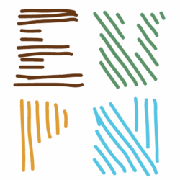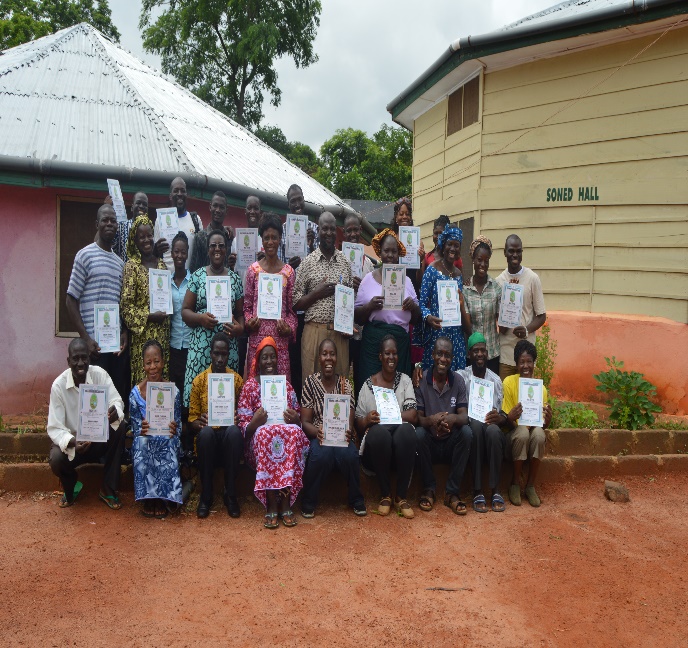 PDC for Burkina participants
PDC for Burkina participantsThe Ghana Permaculture Institute together with its project partner SONED implemented the project named “Poverty reduction through sustainable development in rural areas of Ghana” from September 01, 2014 to March 31, 2018 funded by BMZ Germany. To achieve its objective of contributing to poverty reduction through education and empowerment while improving resource, forest, environmental and climate protection in Ghana, three major measures with their planned workshops were implemented. The measures were 39 green basic workshops, 18 green business workshops and green capacity building measures in which. A total of 791 people have been trained through the workshops. 4600 households in Ghana spanning from Upper East, Upper West, Ashanti, Northern and Volta regions can currently improve their self-sufficiency, income and health status.
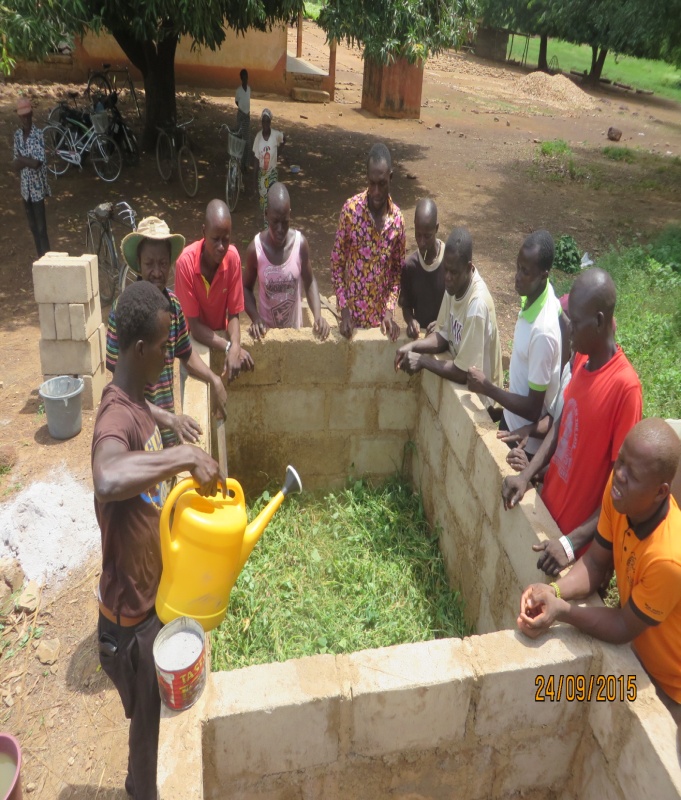 Members involved in a composting workshop
Members involved in a composting workshopIn the green basic workshops, an average of 43 participants were trained in 9 workshops on awareness creation on environmental topics, 11 workshops on tree nurseries and seeds provision, 3 workshops on food and nutrition, 13 workshops on compost making and 11 waste management programs. Measures which were taken on green business workshops were 27 workshops on Moringa production, 8 dry season farming, installation of composting system, animal fodder system, 5 beekeeping workshops, 8 solar irrigation workshops, 3 mushroom growing and substrate production centre creation which trained an average of 43 participants in those workshops. On capacity building, the measures implemented were 2 Permaculture Design courses followed by an advanced permaculture teachers training, 3 advocacy programs on environmental sanitation, a leadership training/Ecovillage Design Course and three conferences.
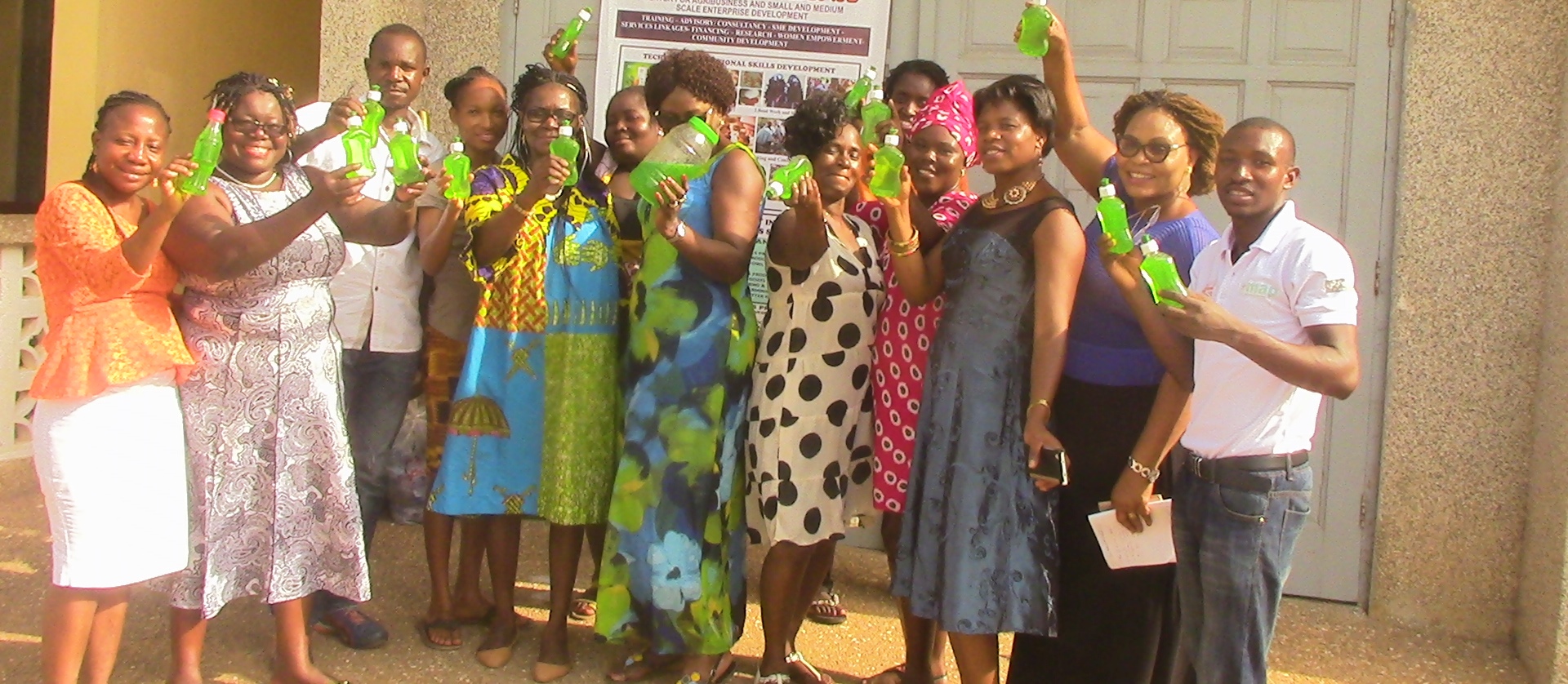 Cosmetics workshop organised for members
Cosmetics workshop organised for membersIn the Green basic and Green business workshops, we have created demonstration units for solar irrigation, dry season farming, animal paddock systems, and Moringa production centres in beneficiary communities. The healthy food and food sovereignty workshops in communities such as Bolgatanga have empowered such communities to improve their health with the inclusion of Moringa, a protein and vitamin dense plant in their diets. A weighted achievement attained through the capacity building was the creation of women groups who focus to discuss measures to improve nutritional status within their communities. Three schools have been involved in preparatory action on seed nurseries at the school’s level. The solar installations have paved way for communities to continue production yearlong. The EDE and PDC programs have led to the empowerment of 70 change makers in Ghana and beyond. Other West African countries which are Togo and Burkina Faso have had access to PDC and teachers trainings through this project and participants from 10 West African countries participated in the leadership training.
A 125 sqm seminar centre and accommodation for up to 50 people has been put up at GPI which has been the host for at least 20 courses in the project implementation. Moringa has become a major plant in GPI. It is processed into powder (super food), dried leaves, oil, cream, shampoo, and ointment which serve several medicinal and cosmetic purposes and as a nutritional supplement.
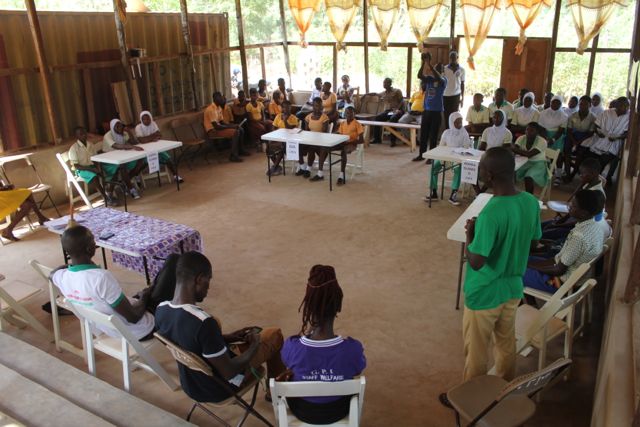
GPI including Junior High Schools in permaculture activities
During the project period GPI also started an international school partnership with the school for adult education in Berlin/Germany. GPI is also participating in an EU-Erasmus+ project to improve the education for volunteers in the participating 8 organisations across Africa and Germany.
GPI has also become financially sustainable through marketing its products on local and international markets. Local farmers in beneficiary communities do not rely on conventional farming methods but on permaculture system of farming and they have food sovereignty and they sell their surplus to improve their economic independence.
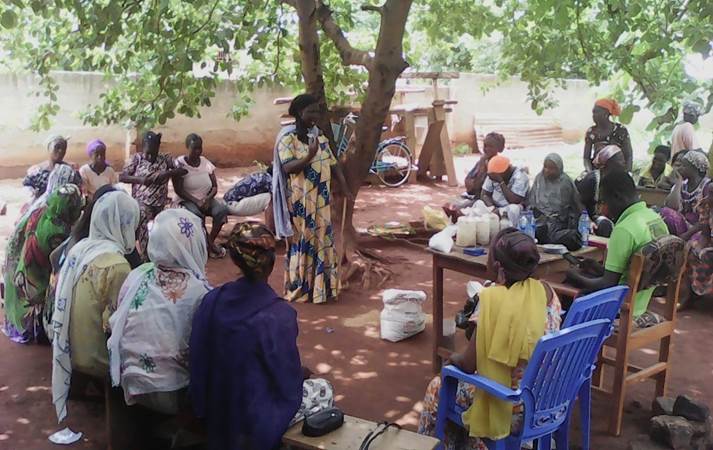 GPI mushroom training for women groups in Nkoranza
GPI mushroom training for women groups in NkoranzaConsidering the positive impacts made after the project implementations, there has been other challenges that need to be addressed seriously. And mitigating these challenges will contribute to the full sustainability of the project. The need has arisen for GPI to scale up this project by putting up two learning centres in two regions in Ghana (Bediako Krom in Brong Ahafo Region and upper west Region -Wa). We want to organize livelihood empowerment trainings and workshops for farmers, women and young adults on entrepreneurship development, rainwater harvesting, composting, mushroom production, moringa cosmetic, biogas development workshop, tree nursery, dry season farming, aspectof alternative medicines and capacity building training for GPI staff and volunteers that will contribute towards the development and sustainability of this project. This idea was developed after a focus group discussion with the communities and the district assemblies during a follow up exercise by GPI team to identify the outcome of the project.
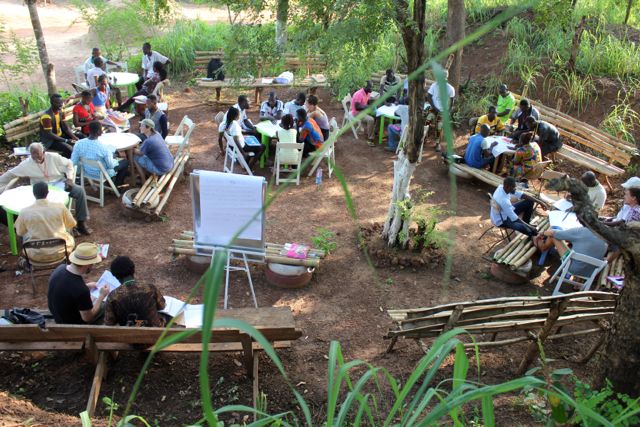 Sharing permaculture concepts for sustainable development
Sharing permaculture concepts for sustainable developmentWe the team of GPI want to send our profound gratitude to all the donors who contributed for making this project a success. Many lives have been transformed from scarcity state to abundance through this project. We believe that, this is just the start of a new permaculture world we are creating. We hope you continue to support us to scale up this project to further develop and sustain our grass root people to improve their living standards.
If you like to support our work please send your donation to our fundraising partners account: SONED in Berlin, IBAN: DE53430609678025306601, BIC: GENODEM1GLS codeword: GPI-project.
